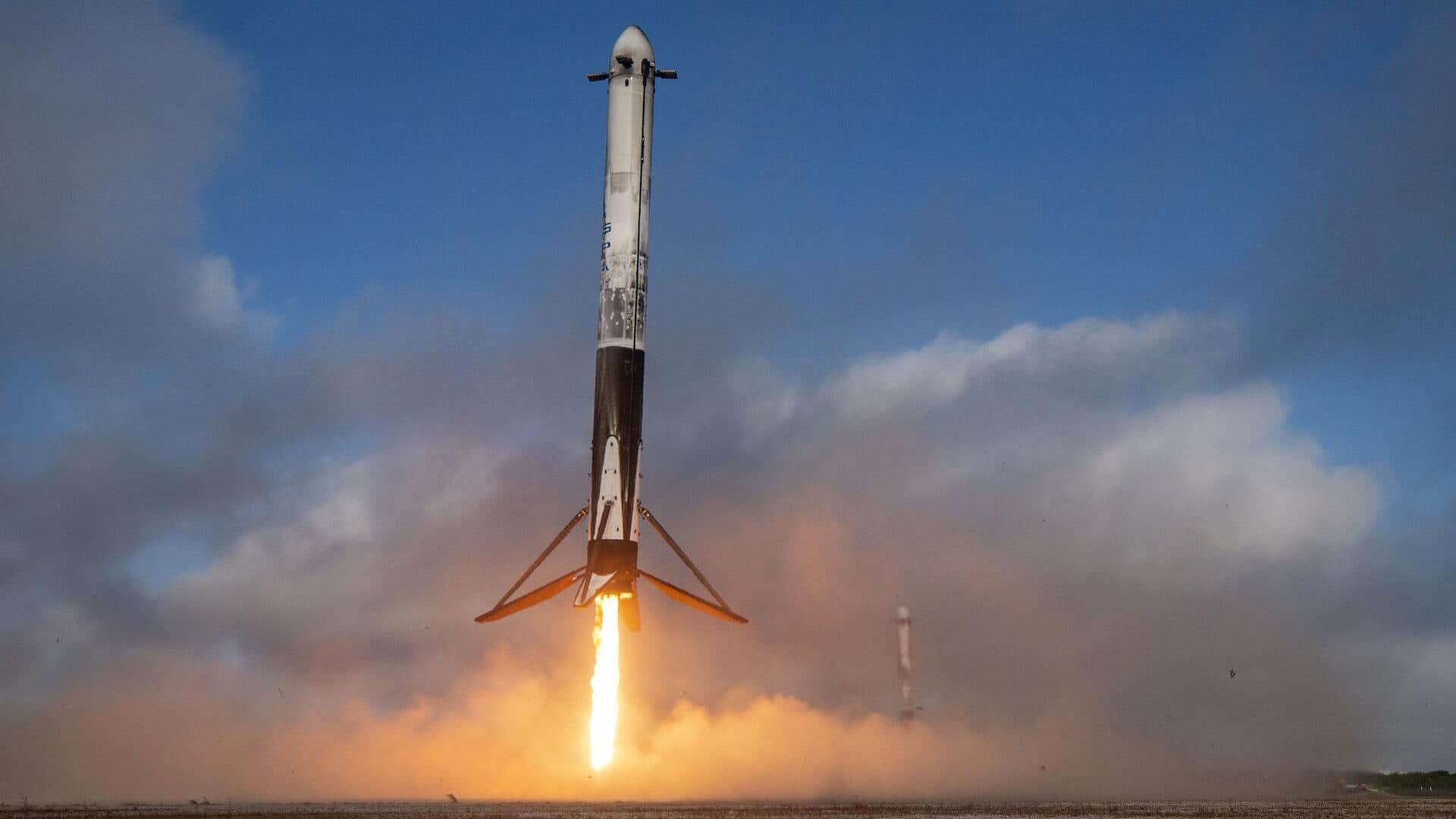
SpaceX's Falcon 9 grounded after first in-flight failure since 2015
What's the story
SpaceX's Falcon 9 rocket, a reliable vehicle for the company, is currently grounded following an unusual in-flight failure during the "Starlink Group 9-3" mission.
The incident happened after launching from California's Vandenberg Space Force Base on Thursday evening.
The mission was carrying 20 Starlink satellites intended for low Earth orbit.
Despite the setback, SpaceX managed to deploy all satellites, albeit in a lower-than-intended orbit.
Failure analysis
Details of the inflight failure
Falcon 9's first stage, or booster, performed as expected before returning to land. However, the upper second stage failed to reignite its engine and was destroyed.
SpaceX CEO Elon Musk confirmed this on X, stating "Upper stage restart to raise perigee resulted in an engine RUD for reasons currently unknown."
The company later revealed that a liquid oxygen leak in the second stage caused the engine failure.
Investigation process
FAA's involvement in investigation
The Federal Aviation Administration (FAA) has confirmed that the Falcon 9 will remain grounded until it approves SpaceX's investigation of the incident.
The agency stated, "The FAA will be involved in every step of the investigation process and must approve SpaceX's final report, including any corrective actions."
The FAA is requiring an investigation into the anomaly to ensure public safety.
Satellite deployment
Impact of the failure on Starlink satellites
Despite the engine failure, SpaceX was able to deploy the 20 Starlink satellites.
The firm made contact with 10 of these satellites in an attempt to use their onboard thrusters to climb higher in orbit.
Unfortunately, recovery of these satellites is not possible due to an "enormously high-drag environment" from being in the wrong orbit. They will re-enter Earth's atmosphere and burn up.
Mission history
Falcon 9's track record and potential launch delays
This incident marks a rare failure for Falcon 9, which has had over 300 consecutive successful orbital launches, since its previous inflight failure in June 2015.
In total, Falcon 9 has sent 354 missions to orbit, with over 300 of those having successful landings and resulting in the reuse of rocket boosters more than 280 times.
The FAA's investigation could potentially delay upcoming launches, including two crewed missions: The private Polaris Dawn and NASA's Crew-9.